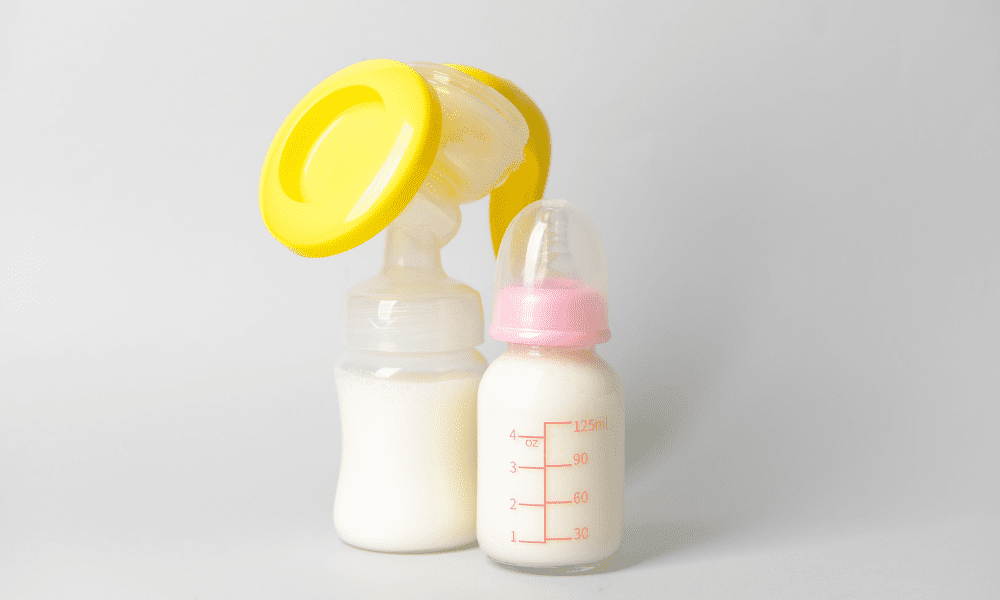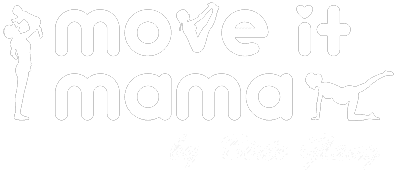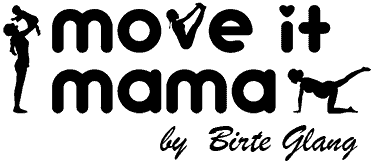Dear mom, it is not only important to pay attention to your diet during pregnancy, but also after birth, especially while breastfeeding. You should be well informed about which foods you can eat during this time and which you should rather avoid. To relieve you of any worries and to educate you well, we start today with our postnatal nutrition series.
Balanced diet during lactation
A varied, balanced and regular diet is essential during breastfeeding, as it supports you as a nursing mom. This is probably nothing new to you.:-) Nutrient-rich foods and additional vitamins and minerals are especially important. Breast milk is “produced” by your body in the best possible way. When breastfeeding, there are actually no strictly forbidden foods. Everything is allowed, but of course in moderation. Only in the following situations could the milk “production” be hindered and the amount of milk decrease, so you should avoid these cases at all costs:
- severe malnutrition
- extremely one-sided diet
- strict diets
- insufficient hydration
- certain previous diseases
But don’t worry mama, usually your body can compensate well for short-term fluctuations in nutrition. The composition of breast milk remains approximately the same and is always individually adapted to the needs of the child.
Which foods are prohibited during the breastfeeding period
In general, there are hardly any restrictions and you do not have to give up certain foods. But watch how your baby reacts to certain products. Every body is individual and can have certain intolerances. If you notice that a certain food is not good for your baby, then of course you should leave it out of the menu. You should avoid stimulants such as alcohol during this phase; you will learn more about this soon in an upcoming article.
Increased cravings during lactation
So if you feel more hungry than usual when you are breastfeeding, it is quite normal, because breastfeeding mothers need more calories. Therefore, don’t feel bad and feel free to reach out and give your body what it’s asking for. As your body’s calorie needs increase, it also means that you should not go on a diet while breastfeeding. At this stage, you are still feeding yourself and your baby, and dieting could lead to a lack of important nutrients.
My tip: Please do not go on a low carb diet. This will immediately have a negative effect on milk production. It is much better to start with a nice porridge or homemade muesli first thing in the morning! By the way, I have never been a fan of strict diets regardless of the mommy time and am of the opinion everything, but everything in moderation can be taken.

Calories and nutrients required during breastfeeding
Breastfeeding requires extra energy and nutrients to give your baby a balanced diet of breast milk. In the first few months after your little one is born, you will need between 500-600 calories in addition to the basic requirement of about 2000 calories.
Are you wondering which nutrients are important for you?
Important minerals and vitamins during breastfeeding:
Folic acid
Throughout mommyhood, your body demands increased folate. Through breast milk, the baby also absorbs folic acid, which is particularly important for the growth process and strengthening of the immune system. Every new mother should therefore make sure to take in enough folic acid during this time as well.
Folate-containing foods: meat & fish, yeast, legumes, vegetables, nuts & fruit and more.
Iod
As during pregnancy, the need for iodine is also increased during breastfeeding. After all, the iodine content of breast milk depends largely on your own iodine supply. Iodine deficiency during breastfeeding can impair the child’s physical and mental development. Therefore, an adequate iodine supply is important. If you do not breastfeed your baby, you should of course still make sure that a normal iodine content prevails. Especially due to the increased demand of the last nine months, this may have become confused.
Iodine-containing foods: sea fish, seafood, milk and dairy products, and iodized salt.
Iron
Getting enough iron is always important, whether you are breastfeeding or not. Your iron needs are not increased by breastfeeding, but the recommended intake is slightly higher than normal to compensate for the loss during pregnancy. So you should make sure to include iron-rich foods in your diet.
Foods containing iron: Meat, some cereals (especially millet, green spelt and oats), bread, sausages and vegetables (spinach, salsify, carrots, fennel, lamb’s lettuce).
Calcium
The need for calcium is also not increased during breastfeeding, but for your health you should make sure that you take in enough calcium. Furthermore, calcium is also known to support the formation of strong bones. Just what your baby needs! And you, as a new mom, should also make sure you get enough calcium so you don’t neglect your body.
Foods containing calcium: Milk and dairy products and some vegetables (broccoli, kale, spinach and fennel).
Biotin
Especially after birth, a normal biotin intake through food is not sufficient, which often leads to side effects such as severe hair loss during this time (learn more below).
Foods containing biotin: liver, egg yolk, oatmeal, nuts, mushrooms, soybeans and more.
My tip: You can easily get most nutrients from the right foods, but due to time constraints and other reasons, you may not always be able to meet your daily needs through food. In such cases, nutritional supplements are your friend & helper. Before taking nutrient supplements, however, be sure to talk to your doctor!

How the right diet helps to reduce hair loss during lactation
In the postnatal period, many new moms also struggle with hair loss due to hormonal changes. A slight loss of hair is unfortunately quite normal. With regular exercise you can actively help with skin, hair and connective tissue problems, but especially the right nutrient intake helps here. Here I recommend Cellagon Felice, the ingredient biotin contributes to the maintenance of normal skin, hair and mucous membranes.
You should exclude an acute iron deficiency. A test (blood count) at the gynecologist is helpful.
In addition, you can use products such as Priorin®. The product is plant-based and acts as a cosmetic hair loss remedy at the hair root and cares for the scalp. It reduces hair loss, thus supporting the hair growth cycle and contributing to natural hair growth.
The nutrient requirement after birth is generally already increased. If you are breastfeeding your baby, you need to take extra care to avoid deficiencies that could harm both you and the baby. I hope I was able to give you a better overview and you are on your way to becoming a mommy nutrition expert! We’ll be back soon with even more exciting topics on postpartum nutrition … #StayTuned.
Keep it Healthy,
Your Birte
Try MOVE IT MAMA 7 days for free
We give you a trial week in which you can test MOVE IT MAMA free of charge and without obligation.


